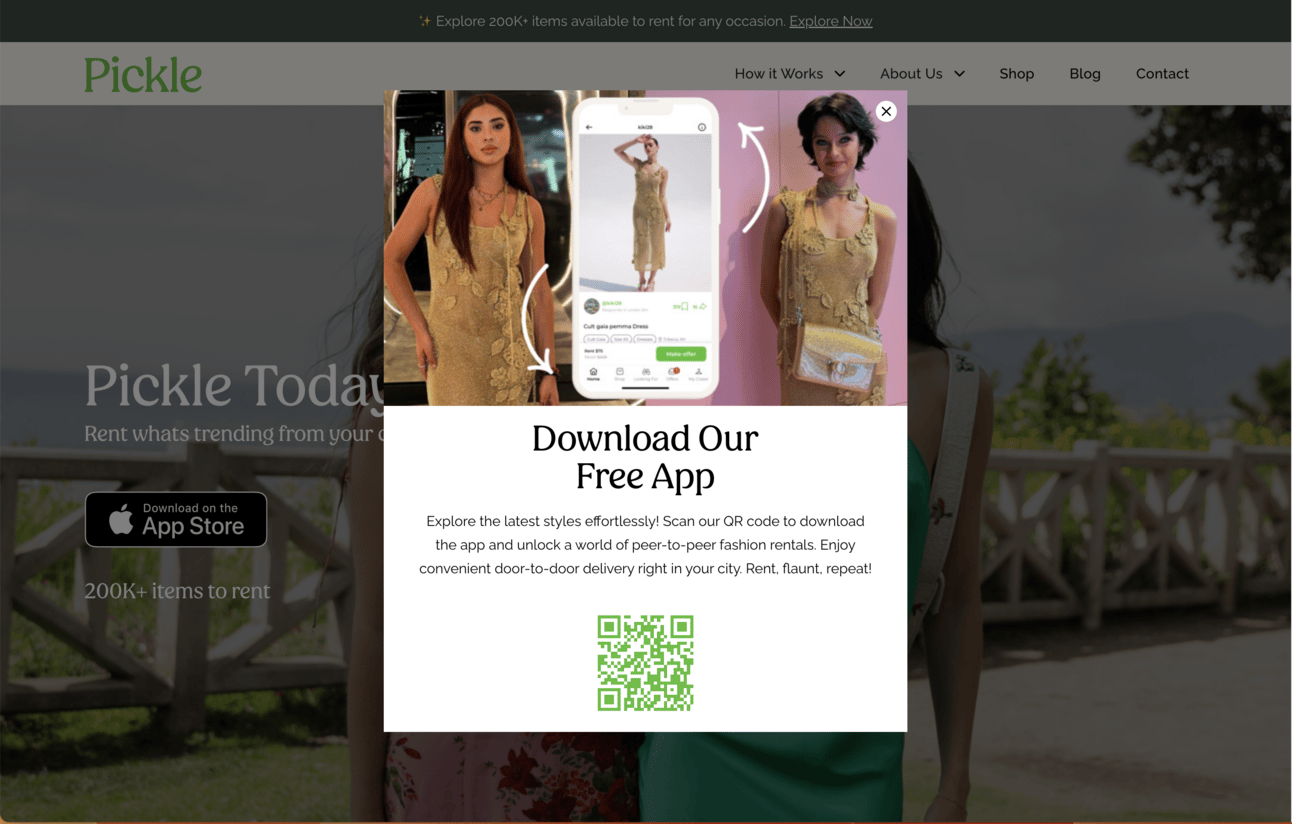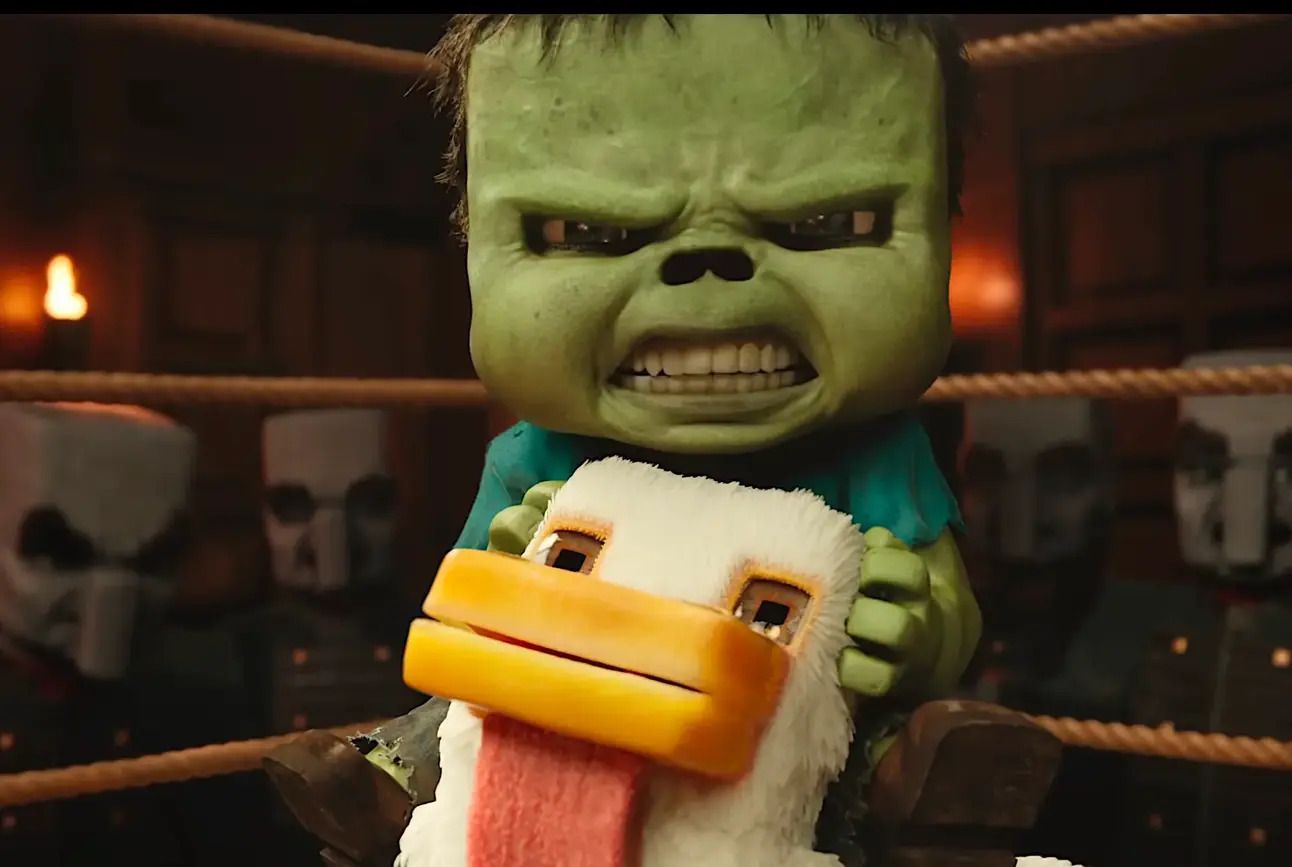
Issue #47: Pickle, The Clothes Sharing App
Recently, I have been reading the autobiography of Joe Coulombe, the founder of Trader Joe’s, entitled Becoming Trader Joe. I would recommend it for anyone interested in operating a retail business. The first third of the book was a fascinating history of the company (did you know it started out as more of a convenience store?), and now the book dives deeper into the retail operations and playbook side. However, there is one fun fact I didn’t know about retail I wanted to share. The words retail and tailor come from the same verb in French, meaning to cut into pieces. One of the core principles of being a retailer, splitting up goods to resell to others - something we shouldn’t forget!

After the success of Issue #45, Inside The Rise of PopUp Bagels, I wanted to deep dive into another company taking NYC by storm, peer-to-peer rental platform Pickle.
History
In 2008, Jennifer Hyman and Jennifer Fleiss, who met at HBS, founded Rent the Runway, one of the first clothing rental companies at scale. Rent the Runways controls all the inventory and directly sends the clothing to people for specific increments of time to rent. It grew in popularity quickly and raised over $400M in venture capital funding. That success culminated in 2021 with an IPO stock price of $385 per share, which has since plummeted to the current price of ~$4.35 per share. Given the operational complexity, balance sheet risk of owning the inventory in a category where trends shift on a whim, and softer demand, the company has struggled, even flirting with bankruptcy. Still, what they did was validate that there was demand for rental clothing, but the model may not have been optimal.
In early 2021, Brian McMahon and Julia O’Mara came together, after meeting at Blackstone, to tackle a similar problem, they wanted to help people improve their clothing purchase decisions. Originally, Pickle was a social polling platform. The user behavior, however, indicated that people were recommending pieces they already owned, which spurred the pivot to a marketplace. People wanted nicer clothing for specific occasions, but didn’t want to pay the $4-500 to get a nice piece of clothing. Simultaneously, people with nice clothing wanted a way to recoup that investment. Enter the Pickle marketplace. Customers list their closet, or browse others closet, then can rent from each other, either fulfilled by meeting up in person or using Uber and Doordash as a courier. There are a lot of steps and guidelines to make sure that people’s clothing is not damaged.
Early on, the company partnered made a conscious effort to partner with influencers to spread the word, and it has clearly helped. Some of the highlighted influencers include Lauren Wolfe, Brigette Pheloung, Remi Bader, Chelsea Vaughn, and Alexa Losey. These influencers fit perfectly into the target demographic Pickle is chasing, which has helped propel the success. According to the founders, 1 in 4 women between the ages of 18 and 35 are using the app. There are currently over 200k items on the platform from over 20k brands. Most of the items retail for around $500 and are rented for $50-$100. The main focus was NYC, then LA, and now Miami. Most of the rental items are clothing-related, but users have begun to rent other items, like kitchenware, which Pickle is starting to expand into.
Pickle recently announced a $12M Series A, bringing total funding to $20 million from FirstMark, Craft Ventures, Burst Capital, and FJ Labs. Like any peer-to-peer marketplace, there have been growing pains with quality and availability. However, that hasn’t stopped a core devoted user base from consistently engaging. One amazing statistic: Nationwide, half of its monthly active users are also weekly active users.
Revenue Streams
Pickle currently charges a 20% fee of the rental price, plus it is most likely taking a portion of the late fee as well. For shipping, there is an additional charge, but for delivery and pickup IRL, there is not an additional fee. Right now, it seems that Pickle is subsidizing the delivery, but that will most likely not stay forever. I would imagine a membership program will be launched, where members get free delivery and all others get a nominal delivery fee. Another additional revenue stream I expect to happen is adding a sales marketplace. Even though rental is the main focus, once someone tries on a piece of clothing, it is very easy to see how a sale could take place. With that in place, now it is a $100 commission vs a $20 commission. A big difference. Finally, the retail aspect. Pickle has an NYC location, and I am confident more will follow. Not only is clothing such an inherent in-person business where people want to try things on in person before they buy, but it also builds trust in the brand.
Exit Potential
The exit potential is the really exciting part of Pickle. Peer-to-peer marketplaces have seen a variety of outcomes. There is a clear pathway to an IPO, purchase by a clothing company, or alternatively an acquisition by a large eCommerce company, Amazon, Walmart etc., that does used goods, but not rentals, and is looking for the latest way to grow their GMV.

The infamous chicken jockey
Warner Bros. Launches Special Minecraft Movie Screening
In 2009, the open-world, build-your-own-adventure video game Minecraft was released. Somewhere between 2010 and 2012, I discovered the game. Over the years, I have spent a significant amount of time playing Minecraft, watching YouTube videos about Minecraft, or discussing the game with others. Unfortunately, I have not had enough time to play or watch in some time, but it still holds a special place in my heart. Turns out, I am not alone. Minecraft is still wildly popular. So popular in fact that Warner Bros., made a whole movie about the game, and got Jack Black to be in it. Released a month ago on April 4th, not yet available on streaming, the movie has grossed $845M worldwide against a budget of $150M. A 5.6x return on a movie in this climate, all from theaters, not too shabby. Part of the reason for the success, the infamous chicken jockey scene, and the reaction:
The excitement has been great for the movie, but not so great for the aftermath of the theater, having to clean up all the popcorn spilled. Sometimes, even live chickens have been smuggled in. Not everyone wants to participate too. This trend has been great for the movie, but not sustainable. So, Warner Bros came up with a solution, special screenings of the movie where people are encouraged to sing, meme, and talk along with the film, starting May 2nd. A great idea to turn a sticky situation into a win-win, and keep the momentum going!
Struggles In The Fast Food Industry
This week, we saw some more earnings calls trickle in from Q1, and there were some definite winners and losers in the fast food space. Let’s focus on two brands lagging in this section right now. First, McDonald’s announced same-store sales declined 3.6%, the largest three-month drop since Q2 2020. In contrast, Taco Bell was +9% same-store sales, bolstered by its new Chicken menu. McDonald’s attributed the decline to middle-income consumers cutting spending (they have already seen lower-income consumers reduce spending). The plan is to keep opening new stores and leverage partnerships, like the one with Minecraft Movie. I think these are strong tactics, but right now, the biggest growth in the industry has been from new concepts or existing concepts adding new menu areas that were previously white space. Will the chicken products recently added be enough? Another company struggling in the fast food space right now is Wendy’s. For Q1 2025, overall same-store sales were down 2.1% year-over-year. According to the earnings call, falling sales were also accompanied by rising costs, which is not great for profitability. Interestingly, unclear if it is related at all, but Wendy’s will now be requiring franchisees to submit P&Ls to help boost profitability.
Nike Launches Group Fitness Studio
Over the past year, I have covered Nike’s fall a couple of times. The great sporting apparel company pushed hard into a strategy that didn’t work in 2021, prioritizing general apparel over sport-specific and D2C over retail. That was coupled with a lack of iconic brand-building moments that made Nike what Nike is. I tend not to like brand marketing, due to its lack of obtainable, measurable ROI, but for some of the iconic companies of our generation, Apple and Nike, that is what defines them. Nike identified these issues and has been focused on turning them around. Back is the brand building (love this UConn one!), and also the retail focus is back too. In addition to the retail focus, Nike is launching a fitness studio in Austin, with Nike-branded strength equipment and a great opportunity to leverage the workout brand in action. Whether this is more of a content play by inviting influencers to do UGC, or if it is a serious push into an adjacent business model, it makes a ton of sense given the synergies between workout apparel and actually working out!
How Not To Do Customer Service
This weekend, I was in Westchester outside of NYC. There was a Verizon outage, and the image below is what was posted was on the Verizon store. Disappointing to see that is how a brand leverages a retail storefront when customers were having difficulties!

Additional Links:
DoorDash and Deliveroo were all set to merge, but could not come to a valuation agreement (read more here)
Crumbl, which has been trying to sell for a while, is closing in on selling a stake to TSG partners (read more here)
With all the rise in Hemp THC products, what characteristics do customers buying it exhibit (read more here)
PopUp Bagels launches raisin bagels this weekend only in partnership with Sun-Maid for National Raisin Day (read more here)
Sweetgreen hires Chipotle exec as its new COO (read more here)
Ralph Lauren acquires the building where its flagship SoHo location is, for a record $132M (read more here)
Walmart opens its first new super center in several years (read more here)
Wayfair revenue is flat, but its customer base is shrinking (read more here)
Target refreshes private label pet brand, Boots & Barkley (read more here)
Burlington Coat Factory is taking the leases of 45 Joann’s Fabric Stores as part of the bankruptcy Joann’s is currently undergoing (read more here)
Was this forwarded to you? Sign up here.
Have an idea or want to chat? Respond to this email.
Is the email not reaching your inbox? Try this trick.

